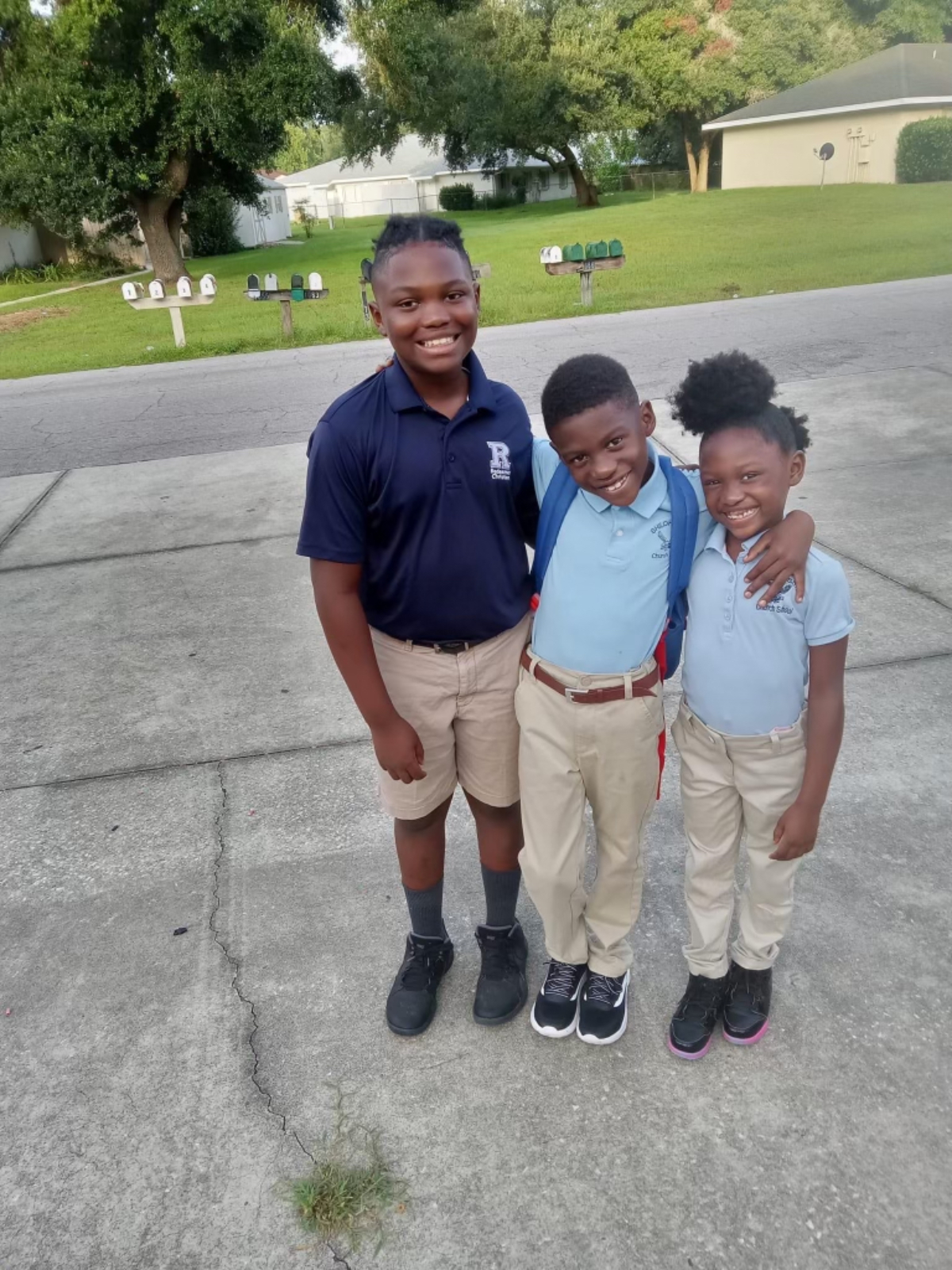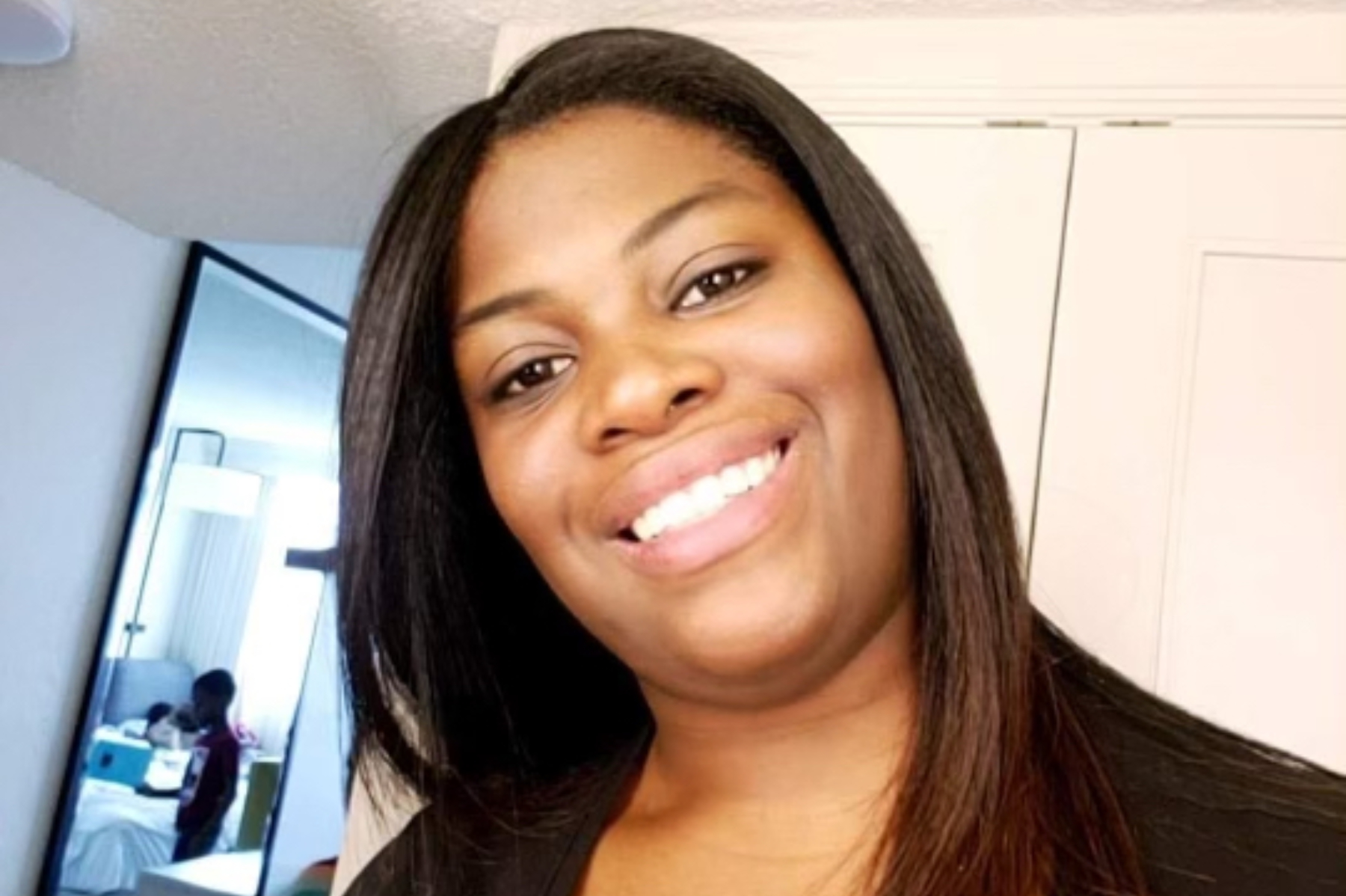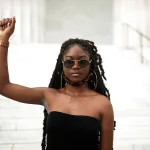Editor’s note: This article was updated after the arrest of Susan Lorincz.
Ajike Owens, known as AJ, loved and advocated for her children. Her family and friends said she would do anything for them. The single mother of four made time to play football with her children in the neighborhood and was saving money to buy a home so they could have their own yard to play in. She took her children and others in the neighborhood to the YMCA to swim and previously led a praise dance team at her church.
Owens, 35, was creating a village around the children in her life before she was killed by a neighbor Friday in Ocala, Florida, leaving her own four children motherless.
“When we say it takes a village, it was a village that raised my baby girl and I am grateful to each and every one. It is now going to take a village for these children,” Owens’ mother, Pamela Dias, said in a press conference Monday. Dias and many who loved Owens are calling for justice, starting with the arrest of her killer.
Owens adored her children and taught them lessons that would help them into adulthood. One of her latest ventures was making “lilly dillies,” frozen treats that she and her children sold in the neighborhood, to teach them about economics.
“She had a heart for kids,” Owens’ longtime friend Tarlisa Brown said, remembering her friend as the children’s advocate and protector. That’s what she was doing when she was shot and killed.
Owens, who is Black, was killed by 58-year-old Susan Lorincz, a White woman. The Marion County Sheriff’s Office said they arrested Lorincz Tuesday night. She faces charges of manslaughter with a firearm; culpable negligence; battery; and two counts of assault, Sheriff Billy Woods said.

According to statements released by the sheriff’s office and Owens’ family attorney, Owens’ children had been playing outside Friday evening when Lorincz began yelling at them. She threw a roller skate that hit Owens’ son, the sheriff’s department said. When he told his mother what happened, she went to her neighbor’s door and knocked, with her son at her side, according to both statements. Lorincz then shot Owens once through the apartment’s closed door, both statements said.
Phyllis Wills, who lives across from the apartment at which the shooting occurred, said that over the past two years, Lorincz has harassed and called both her children and Owens’ children racial slurs. Not long after her children had come inside from playing with Owens’ that day, she said, Owens’ oldest son came to her door, out of breath, saying the White woman had shot his mother.
Owens’ killing sits at the nexus of two issues that have plagued the United States: a proliferation of gun violence and racial injustice.
Her death adds to the increasing toll of Black women killed in this country. In 2021, 2,077 Black women and girls were killed. While killings were on the rise nationwide, Black women and girls saw a particularly sharp increase, 51 percent higher than in 2019.
Woods said that both Owens and the shooter had called police regarding disputes between the shooter and the children since January 2021. The nature of many of those calls, he said, was “children being children.”
“I wish our shooter would have called us instead of taking actions into her own hands. I wish Mrs. Owens would have called us, in hopes we could’ve never got to the point for which we are here today,” Woods said.
Tuesday evening, dozens of protesters took to the streets, unhappy with the delay in an arrest. Woods had previously attributed the delay to Florida’s “stand your ground” law, which prevents an arrest before law enforcement determines whether the use of force was justifiable. The state’s statute allows for the use of deadly force without any duty to walk away from the danger if possible. This policy is a departure from traditional self-defense laws.
“It does not apply in all situations, and this situation is a prime example of when it was not justified. It was simply a killing,” Woods said in a video released following Lorincz’s arrest.
“Stand your ground,” otherwise known as “shoot first,” laws have disproportionate effects on Black and Brown communities. According to research by Everytown for Gun Safety, shootings involving stand-your-ground laws with White shooters and Black victims are deemed justifiable five times more frequently than when it is reversed.
Owens’ family has retained Ben Crump, the attorney who rose to national consciousness after representing the family of 17-year-old Trayvon Martin, an unarmed Black boy who was killed in Sanford, Florida, in 2012 by George Zimmerman. A jury declined to convict Zimmerman, finding that his actions fell under the same stand-your-ground laws.
According to research by Everytown for Gun Safety and another 2022 study published in JAMA Network Open, stand-your-ground laws have been linked to an increase in gun deaths. The 2022 study found a national increase of up to 11 percent in homicide rates between 1999 and 2017 in states with these laws. At least 28 states have these laws, according to the National Conference of State Legislatures.
Angela Ferrell-Zabala, executive director of Moms Demand Action, is also a Black mother of four. She leads a group that advocates for stronger gun laws.
“We have a ‘shoot first’ culture in this country. When you pair having guns everywhere, a simple argument or simple disagreement becomes deadly in this country,” Ferrell-Zabala said. “And it doesn’t go unnoticed for me that if AJ Owens was a White woman she would still be alive and her children would have a mother.”
Katherine Gilyard contributed reporting.
Correction: Because of an editing error, an earlier version of photo credits with this article misspelled Ajike Owens' first name. The error also appeared in a caption. An earlier version of the article also misspelled Angela Ferrell-Zabala's surname. It also misstated the circumstances under which shootings are more likely to be found justifiable under a stand-your-ground law. It is when the shooter is White and the victim is Black.







